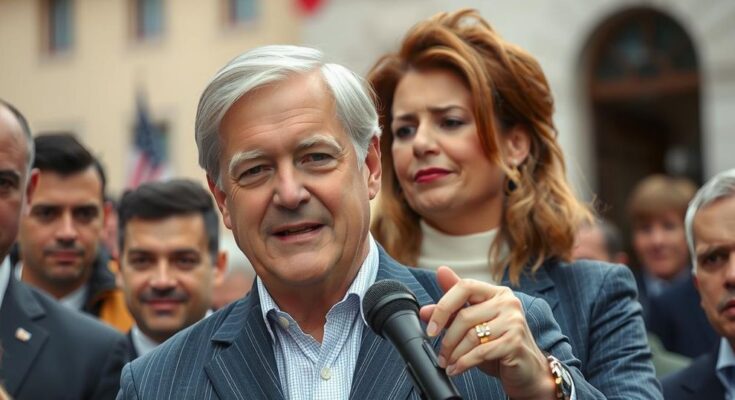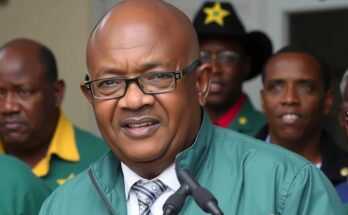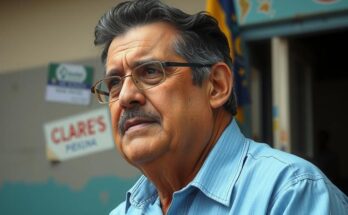Croatia’s President Zoran Milanović is seeking reelection amid a competitive presidential race against several candidates, including Dragan Primorac. Known for his critical stance on Western military support for Ukraine, Milanović may face a runoff if no candidate secures a majority of votes. Other contenders, like Marija Selak Raspudić, focus on pressing national issues. This election is crucial for the future political landscape in Croatia, emphasizing themes of corruption and economic hardship.
Croatia’s outspoken president, Zoran Milanović, is campaigning for reelection amid a competitive field of candidates, including Dragan Primorac, backed by the conservative ruling party. Milanović, endorsed by the Social Democrats and known for his populist style, has previously served as prime minister and remains a polarizing figure due to his critical stance on Western military involvement in Ukraine. This contentious election could lead to a runoff if none of the contenders achieves a majority in the initial round. Political analysts suggest that while Milanović is currently favored, other candidates like Marija Selak Raspudić may pose a significant threat in the runoff due to their focus on pressing issues such as economic challenges and corruption. Since Croatia joined the European Union in 2013, political dynamics have evolved, making this election pivotal for the country’s future governance and democracy.
The Croatian presidential election is characterized by a contentious political landscape, particularly surrounding President Zoran Milanović’s tenure and views on international military engagements. As president, Milanović holds a ceremonial role but possesses significant political authority. His critical approach toward NATO and European Union positions regarding Ukraine has reshaped his public perception. With multiple candidates entering the race and pressing issues such as corruption and economic challenges at the forefront of debates, the election signifies a crucial moment for Croatian democracy and governance.
In conclusion, the upcoming presidential election in Croatia reflects a complex political environment featuring multiple candidates with divergent views and goals. Zoran Milanović’s reelection bid highlights significant divisions within the electorate concerning international policy and domestic governance. Observers suggest that should he fail to secure a majority, the ensuing runoff could indicate a shift in Croatian politics, particularly with challengers addressing pressing socioeconomic issues.
Original Source: www.local10.com




